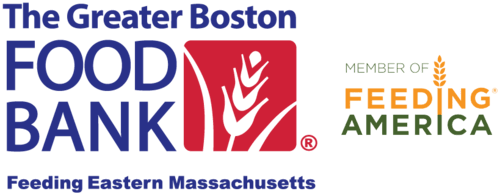The Effect of Federal Tax Reform
Right now, Congress is working to overhaul the U.S. tax system with the Tax Cuts and Jobs Act. This process has been expedited with the goal of passing the largest tax reform bill in three decades before the New Year.
As the legislation currently stands, the proposed tax cuts would likely provide little direct, tangible benefit to food insecure individuals across Massachusetts and the nation. At the same time the bill would likely result in reducing or eliminating programs that directly benefit many low- and middle-income individuals and underserved communities, like Medicaid, Medicare, Social Security and the Supplemental Nutrition Assistance Program (SNAP).
Proposed changes to individual deductions will reduce charitable giving, making it more difficult for The Greater Boston Food Bank and other nonprofit organizations to help those in need.
Tax Cuts and Jobs Act Impact Highlights:
- Does not prioritize assisting taxpayers who are most at risk of being food insecure, and as a result they are not among the primary beneficiaries of the bill’s nearly $5 trillion in tax reductions.
- The bi-partisan Joint Committee on Taxation’s assessment shows that by 2021 the average tax rate for those earning between $10,000 and $30,000 will increase, and overall finds most people earning less than $75,000 a year will be worse off under the proposed tax bill.
- The increased deficits created by the legislation, and the resulting additional debt that must be financed, could create enormous pressure in the future to cut spending from vital programs like SNAP that empower households to escape poverty.
- Increases the income eligibility threshold for the child tax credit, which provides a tax credit per qualifying dependent child based upon your income.
- Directly harms GBFB and all non-profits via the bill’s changes to the standard deduction and itemized deductions, which would essentially make the charitable deduction for many taxpayers ineffective. This provision in the tax code has for more than a century encouraged gifts to charity. A recent study estimates the Tax Cuts and Jobs Act could cause annual charitable giving to decline by approximately $10 billion.
For more information on the impacts of this bill, please read this full analysis by Feeding America and this letter from Diana Aviv, Feeding America’s president and CEO, addressed to U.S. Senate leadership.
CALL TO ACTION:
The Senate is expected to vote on their version of the Tax Cuts and Jobs Act on Thursday, November 30.
- Contact Senators Markey (202-224-2742) and Warren (202-224-4543) and ask them to vote “NO” on tax reform, urge their colleagues to do the same, and thank them for their support.
- You can also contact your federal legislators, state legislators, and Governor Baker to ask them to speak out against this proposed tax reform.
- Share this message on Facebook and Twitter with family and friends from other states. They can use the toll-free number (888) 398-8702 to contact their own Senators.
At a time when the amount needed to feed our hungry neighbors continues to rise, we should not undermine federal nutrition assistance programs. If you have any questions, please contact GBFB Public Affairs Manager Catherine Drennan at cdrennan@gbfb.org.

1 thought on “The Effect of Federal Tax Reform”
Comments are closed.